Latest News
12 December 2019
TU Delft selected as ELLIS unit for AI and machine learning
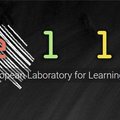
The European Laboratory for Learning and Intelligent systems (ELLIS) have selected TU Delft for establishing one of its units for European research excellence in Artificial Intelligence (AI) and machine learning.
11 December 2019
A boost of €4,1M for joint proton therapy research TU Delft, Erasmus MC and LUMC

The next round of funding has been awarded to 13 researchers within the HollandPTC R&D consortium.
10 December 2019
Greenland ice losses rising faster than expected

Greenland is losing ice seven times faster than in the 1990s and is tracking the IPCC’s high-end climate warming scenario, according to the Ice Sheet Mass Balance Inter-comparison Exercise (IMBIE) Team.
10 December 2019
ERC Consolidator Grant for better energy conversion
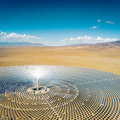
TU Delft researcher Dr. Rene Pecnik has been awarded an ERC Consolidator Grant for his research into energy conversion
10 December 2019
Combination of microscopy techniques makes images twice as sharp
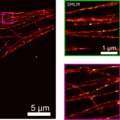
Researchers at Delft University of Technology have combined two existing super-resolution microscopy techniques to create a new method. Many experts thought that combining these techniques was not technically possible. The new, combined method enables researchers to visualize the tiny components of living cells better than ever before. Among other things, this can lead to new insights for healthcare.
10 December 2019
MAVLab world champion in AIRR autonomous drone race 2019
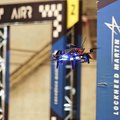
A team from the MAVLab of TU Delft has won the Artificial Intelligence Robotic Racing (AIRR) World Championship in Austin, Texas
04 December 2019
TU Delft starts online platform with science stories
On www.tudelft.nl/stories you can find a selection of stories about our research and our scientists.
03 December 2019
Understanding and predicting sandy beaches
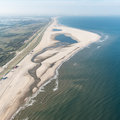
Sand is the second most widely used raw material in the world, after water. Sand dunes keep our country safe from flooding.
03 December 2019
All Pilsner yeast strains originate from a single yeast ancestor
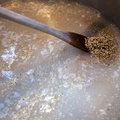
Pilsner yeast, the well-known micro-organism that brewers use every year to make hundreds of billions of litres of pilsner and other lagers, came into being 500 years ago through an accidental encounter between two species of yeast. The yeast strains now used to brew pilsner can all be traced back to that time. This is the conclusion reached by TU Delft researchers based on extensive DNA analysis.
29 November 2019
TU Delft 53th in THE University Employability Ranking

TU Delft ranks 53th in the Times Higher Education Global University Employability Ranking 2019, two places higher than last year.
